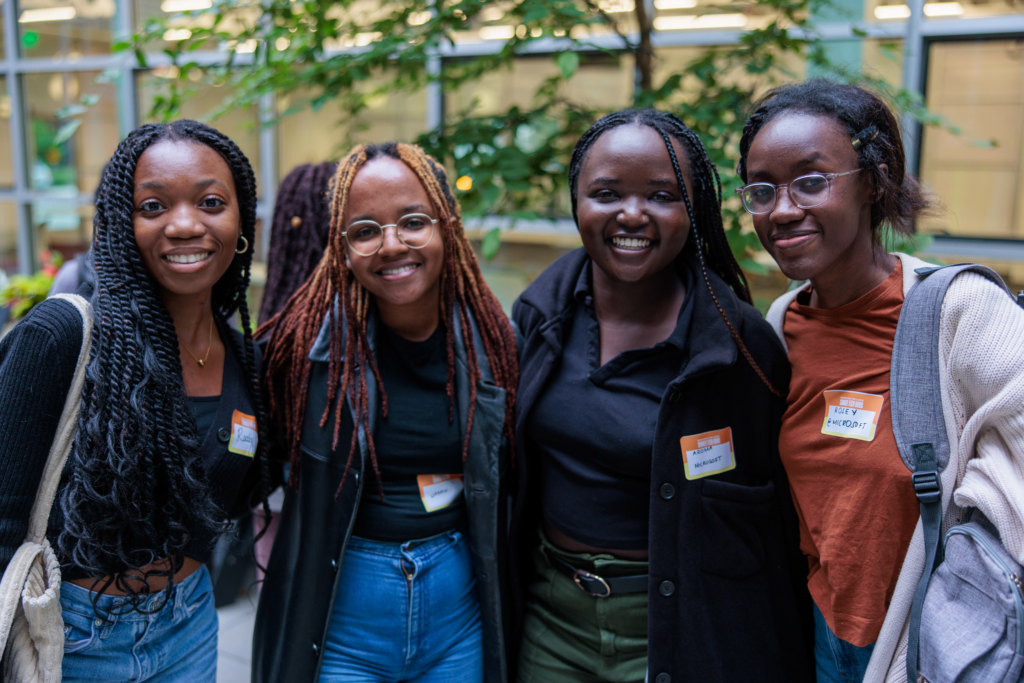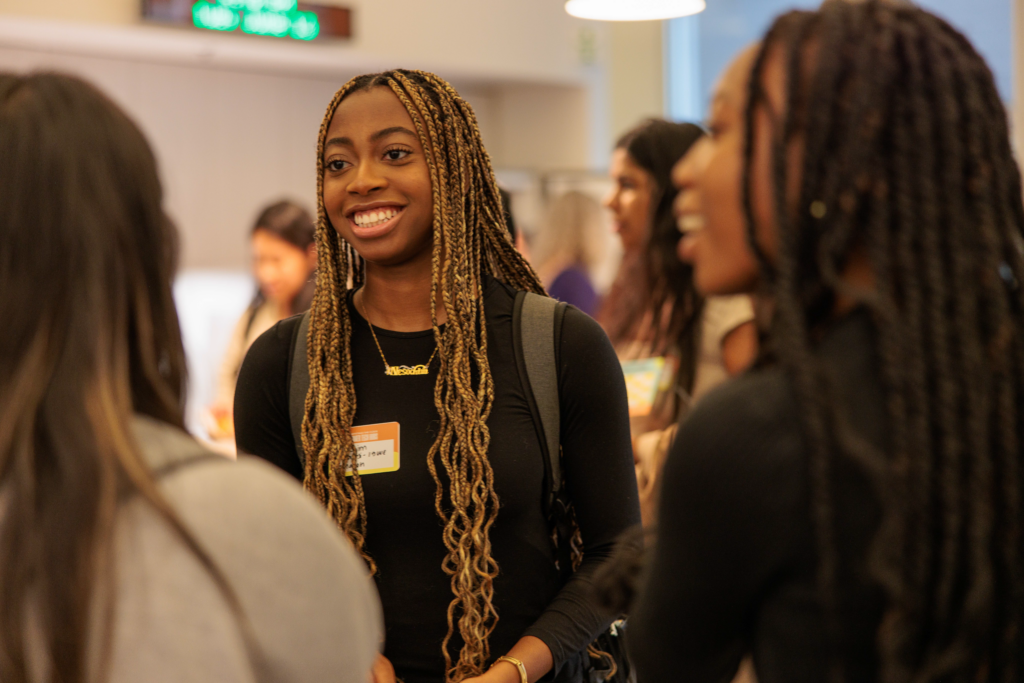How Rewriting The Code’s Black Wings Program Uplifts Black Women In Tech

Across industries, companies are rolling back or dismantling DEI programs. From removing references to diversity to ending programs completely, many companies are rethinking their commitments to equity and inclusion.
Black women in tech hold just 2% of roles. And organizations that exist to support them, like Women Who Code and Girls in Tech, are closing due to funding issues. Combined with the current climate, entering the tech industry can seem even more daunting.
But Rewriting the Code’s (RTC) Black Wings program is standing firm for its members, offering support, resources, and community. Her Agenda spoke with Dr. Kristin Austin, RTC’s Vice President of Culture and Community Impact, and LaToya Anderson, a Black Wings early career member, about the program’s mission and impact.

A Space For Belonging
With so few Black women in tech, feeling isolated and alone is unfortunately common. They are often one of few, or the only one, in college tech classes or corporate offices. Being the minority can affect feelings of confidence, ambition, and belonging. Black Wings addresses these barriers with its focus on visibility and representation.
“What the Black Wings community is able to do is turn a minoritized group into the majority,” Kristin said. “[Black women] are either hypervisible or invisible. But in this space that is completely congruent with your identity, you just get to exist in your fullness.”
Aside from community, Black Wings tailors its support to meet members where they are. Panels like “Things I Wish I Knew” help first-generation students get their bearings. There are leadership opportunities for high-achieving members and passive access to information for introverts. The program provides referrals to outside resources, virtual and in-person summits, and practical workshops on topics such as interviewing, resume reviews, and creating a LinkedIn profile. Peer amplification of opportunities is also a common practice.
LaToya credited the program’s community meetings with motivating and supporting her.
“It was an opportunity to meet other Black women within RTC,” she said. “We were able to exchange resources and learn tips, tricks, and tools to improve resumes or land an internship. It created a sisterly bond, and that gave me the confidence and strength to continue doing what I was doing.”
“There’s a strong culture in general among people of color of we lift as we climb,” Kristin said. “We have something for everyone.”
Standing Firm And Persisting
The shifts in DEI have not slowed down Black Wings’ mission: retaining women in the tech spaces they want to be in.
“We’ve not changed any of our offerings other than making them stronger and sassier,” Kristin said. “We can emphasize retention and provide solutions just by saying, ‘What are the tools that you need to persist?’”
Black Wings’ persistence is based on the knowledge that progress has not come with permission for Black women.
“It’s always something that has been a continual fight, but we’ve already known for years how to hold our breath and still swim,” Kristin said. “This is not new; we’ve known how to exist around it.”

A Steadfast Safe Harbor
Regardless of the current climate regarding diversity, RTC and the Black Wings program continue to serve their community. They are not focused on trends but on celebration, commiseration, and truth in a world of gaslighting.
“The goal is for [members] to continue to find our offerings to be a complete solution for their yearning, appetite, and needs,” Kristin said. “If the women come and say, ‘I feel seen, heard, and valued,’ we have already achieved what we need.”
This intention is embedded into all of the program’s offerings, something LaToya highlighted as vital to her experience with Black Wings.
“Black Wings is an amazing safe space to ask whatever questions you have,” LaToya said. “Just sitting back, observing, and listening to the conversations is an education in itself.”
Looking Ahead
A recent investment from Melinda Gates’ Pivotal Ventures will allow RTC to further solidify its commitment to women in tech. The funding reinforces the organization’s value and will allow it to continue growing without compromising its values.
For Black women in tech or considering it, both Kristin and LaToya stressed the importance of having a support system.
“RTC was pivotal in helping me learn about what’s out there and connecting with other women in the same realm as me,” LaToya said.
“Once you get the support and the network that you need, you can do the rest,” Kristin said. “We literally have everything a student needs to be successful in tech and to persist beyond those barriers.”






